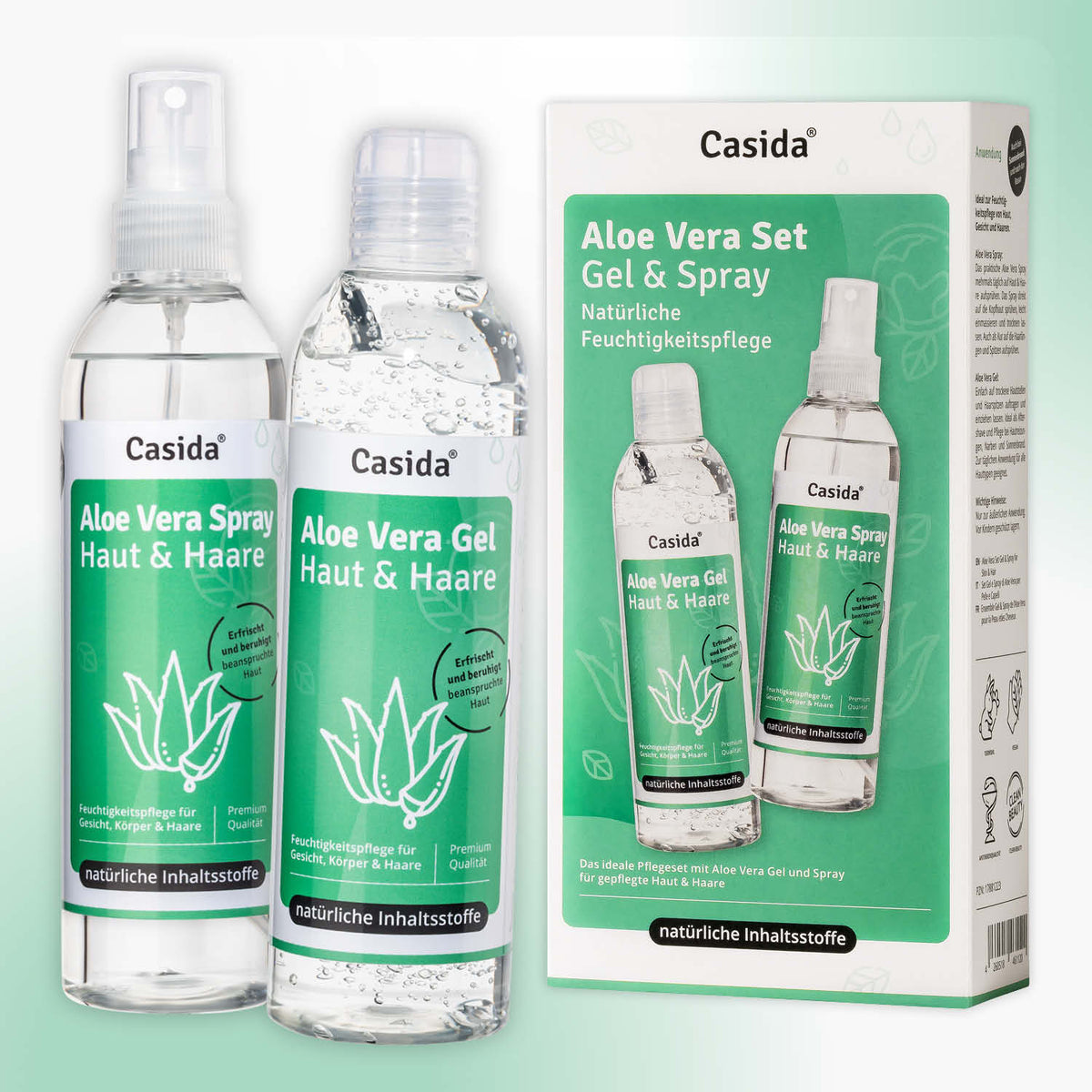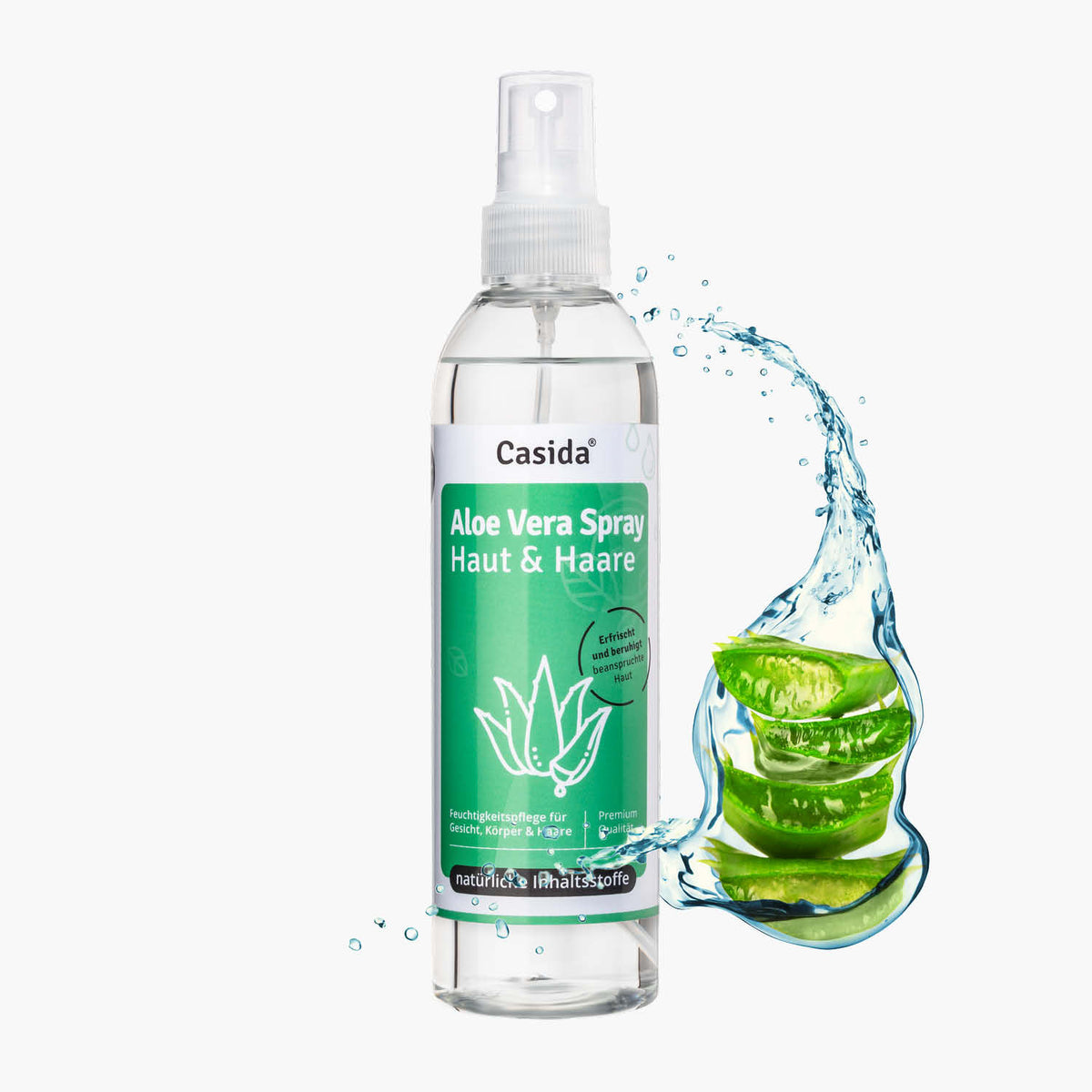Not everyone can enjoy spring. Like Casida employee René Runge, around 16 percent of the population suffer from hay fever. With the intestinal flora complex with inulin from the pharmacy, he is now almost symptom-free!
Hay fever or a cold?
Especially in spring, when most people enjoy the first rays of sunshine and take pleasure in the awakening nature, many people experience painful times. The hay fever season begins. But how can you tell the difference between the symptoms and a cold?Symptoms of a pollen allergy such as hay fever
(Pollen) allergy sufferers suddenly react to harmless pollen with itchy & watery eyes, runny nose or blocked nose, regular sneezing attacks and often a general feeling of illness. As a result, restful sleep is hardly possible. There is a general weakness and listlessness, and performance decreases.Differentiation from house dust allergy
If the symptoms occur all year round and despite closed windows after getting up, a house dust allergy is a possible cause.Differentiation from a cold
If headaches or a scratchy throat occur beforehand, it is likely to be a cold. A cold lasts up to a week, while hay fever depends on when the allergenic plant pollen is in bloom. However, both can also occur at the same time.What helps against hay fever?
Avoid contact with pollen with the pollen calendar
Use the pollen count calendar to find out which pollen is currently in the air: DWD Pollen Count Danger Index Unfortunately, sufferers can hardly escape the allergens. If left untreated, the symptoms only improve temporarily when the allergy-causing pollen count decreases or you avoid all contact. The disease will return the next season - usually more severely and with asthma or cross-allergies.Medication for hay fever
A distinction is made between locally acting and systemically acting medications, which act against the symptoms of hay fever. Topical medications act locally, such as eye drops, nasal drops and nasal sprays in the form of antihistamines, corticoids, vasoconstrictors to constrict the blood vessels or medications containing cromoglicic acid. Systemic medications act on the entire body and are administered in the form of tablets, drops or juices (antihistamines).Hyposensitization
In contrast to local treatment of the eyes and nasal mucous membranes with nasal sprays or ointments, which focuses on the symptoms, a holistic approach aims to cure the cause of the disease. In hyposensitization, the allergens are administered regularly in increasingly stronger doses. The aim is to make the immune system tolerant to allergens such as grass pollen. This long-term treatment is more promising than other forms of treatment. In many cases, it is possible to alleviate the symptoms and severity of hay fever. Unfortunately, however, the treatment is not successful for everyone.Asthma and cross-allergies
Additional diseases such as asthma or cross-allergies to food can occur over the years. The molecular similarity between birch pollen and pollen from legumes such as peanuts or peas is a cause of cross-allergies. Even hyposensitization, in which only weakened doses of the allergens are administered, can lead to a cross-allergy.Personal experience report: probiotics instead of hyposensitization
In the case of our employee René Runge, eating pea soup in the university canteen led to a severe cross-allergy, so that the hyposensitization that had been started had to be discontinued."After treatment against birch, grass and rye pollen as part of hyposensitization, I had eaten pea soup. This combination led to immediate vomiting and permanent intolerance to peas, lentils and other legumes. It was clear to me that the hyposensitization must be the reason and I stopped the treatment. During the hay fever season, I took tablets again, but the fatigue and stress increased over the years and I also developed asthma. I have had positive experiences with taking Darmflora Komplex capsules - a food supplement with selected bacterial strains for the intestines. After four months, I felt significant relief in the hay fever season and the asthma was also gone. However, I still experience mild symptoms when eating pulses. But that depends on the preparation."
Connection between the immune system, hay fever and gut flora
If the gut has sufficient protective bacteria, the mucous membrane can regenerate, inflammations subside and the immune system calms down. The body's own defenses relearn to distinguish between pathogenic and harmless substances."Very often there is a direct link between allergic reactions and bacterial colonization in the gut. An unfavorable structure of the intestinal flora can lead to damage and overreactions of the mucous membranes, both in the intestines and in the nasopharynx. If the gut is cleansed with suitable probiotic substances, the overactive immune system can calm down. Allergic symptoms, such as inflammation of the nasal mucosa and eyes, subside."
These probiotic products are recommended for allergies
Lactic acid bacteria in particular protect and stabilize the mucous membranes. In combination with resistant starch (inulin), these bacterial strains settle better. It serves as food for the good intestinal bacteria. We recommend preparations with a proven mixture of lacto- and bifidobacteria with inulin, such as the Casida Intestinal flora complex with inulin. The strains Lactobacillus salivarius and Lactobacillus reuteri can be used in the form of lozenges to strengthen the local mucous membranes in the throat and pharynx. They also promote the care of the oral cavity to prevent tooth decay, aphthae and gingivitis. A complete set for gentle, natural support for allergies is offered by the Hay Fever Adé Set with quercetin (a powerful herbal antihistamine) zinc drops, which contribute to the normal functioning of the immune system, and the probiotics complex capsules with inulin. As the experience report shows, not every treatment for allergies leads to success. What are your experiences? We look forward to hearing about your personal experiences in the comments. Best wishes from the Casida team! Sources & further links:- German Lung Foundation e.V. "Can probiotic foods alleviate hay fever?" (2008) Article available online: https://www.lungenaerzte-im-netz.de/news-archiv/meldung/article/koennen-probiotische-lebensmittel-heuschnupfen-lindern/
- ECARF "Less hay fever due to probiotics" (2020), article available online: https://www.ecarf.org/weniger-heuschnupfen-durch-probiotika/
- Jakubczyk, Dominika and Górska, Sabina: "Impact of Probiotic Bacteria on Respiratory Allergy Disorders" In: Front. Microbiol., 21 June 2021, article available online: https://doi.org/10.3389/fmicb.2021.688137
- Michail, Sonia: "The role of Probiotics in allergic diseases" In: Allergy, Asthma & Clinical Immunology volume 5, Article number: 5 (2009) Article available online: https://aacijournal.biomedcentral.com/articles/10.1186/1710-1492-5-5
- Dissertation by Hennen, Marcel (2009) Regulatory influences of probiotic bacteria on allergic immune responses, available online: https://archiv.ub.uni-marburg.de/diss/z2009/0044/pdf/dmh.pdf
- Fuller, R. (1989): Probiotics in man and animals, article available online: https://pubmed.ncbi.nlm.nih.gov/2666378/







